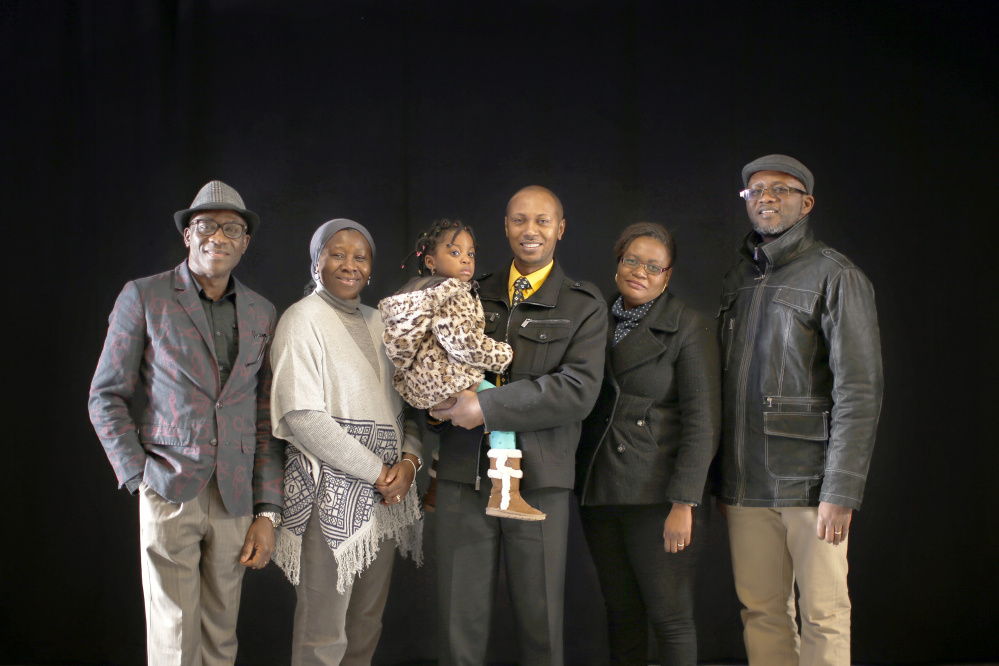Before she fled her country’s burgeoning civil war, Micky Bondo was a medical researcher in the Democratic Republic of Congo spending her days in laboratories testing babies for sickle cell disease, a genetic red blood cell disorder, and counseling parents on their care.
When she immigrated to the U.S. in 1996, Bondo learned she would not be able to take up her work again.
U.S. employers did not recognize her master’s degree, she was told, or the 17 years she’d worked in medicine.
But with three young children in tow, Bondo needed to work, so she took what she could find – a job behind the counter of an Atlanta-area McDonald’s, earning $4 an hour.
“It was really depressing for me,” Bondo said. “But after a couple of years I decided, OK, I need to shake off myself to see if I can do better.”
Bondo’s story is not unusual in Portland’s growing immigrant community, where people escaping war or religious persecution – or simply seeking a better life – make it to the U.S. only to face intimidating and systemic barriers to assimilation.
For those without the benefit of an education in their home countries, those hurdles can sometimes be insurmountable.
So two decades after she arrived in the U.S., Bondo has devoted herself to helping immigrant families successfully integrate in their adoptive country.
In addition to working as a translator in the Portland public school system, she helped found the nonprofit Congolese Community of Maine, a cultural organization offering English language, computer and driving classes as well as professional support services to Portland’s immigrants.
“We build everything around language access and literacy so they can find themselves and discover who they are in their new country and how they can invest in having a better way (of life),” Bondo said.
In February, Bondo and her colleagues at Congolese Community of Maine are due to launch an innovative dual-generation English language program aimed at overcoming parents’ language barriers and closing gaps in early education for immigrant children as the adults in their lives learn to navigate U.S. education systems.
The benefits of this kind of early education intervention are difficult to overstate. Long-term studies show that children who go through early learning programs experience lifelong benefits to cognitive development, academic performance, emotional development and even physical health, according to the U.S. Centers for Disease Control and Prevention.
The programs are also seen as sound investments. Every dollar spent on state and district early childhood education programs generates $5.19 in economic activity, according to the Washington State Institute for Public Policy. Head Start programs see a threefold return on investment, the institute found.
That’s why the Congolese Community of Maine program appealed to Tim Griffin, a founding member of the Brick & Beam Society, an affinity group of the United Way of Greater Portland, which donated $50,000 to get the program off the ground.
“We wanted to start at the beginning of life,” Griffin said of the group’s inaugural year grant. “There’s some pretty compelling statistics out there that if you can’t read at grade level by third grade you’re going to have a really tough time graduating from high school.”
At the core of the program is the recognition that children’s fortunes are directly linked to those of their parents. With that in mind, Congolese Community of Maine’s leaders created a two-tiered curriculum so parents can not only learn English but also teach it to their children by reading and practicing together at home. The program will also include workshops with parents showing how to navigate Portland’s school system and actively engage in their children’s education.
Dual generation approaches to education and poverty are receiving increased attention nationally, including in legislation recently proposed by Maine Sen. Susan Collins. Collins’ bill, called the Two Generation Economic Empowerment Act, would launch a five-state pilot program that would give those states flexibility to coordinate existing anti-poverty programs and funding streams to better address the complex economic, educational, social and health challenges facing families in poverty.
In an op-ed in the Portland Press Herald this month, Collins and Tony Cipollone, president and CEO of the John T. Gorman Foundation (which also helped fund Brick & Beam), wrote that social and economic programs that simultaneously target parents and their children have the potential to break multigenerational cycles of poverty.
“By developing and implementing strategies that reshape both child- and adult-focused services along two-generation lines, programs can better achieve a range of goals and increase a whole family’s chance of economic success and self-sufficiency,” they wrote.
Bondo hopes that programs like these can also help immigrants to the U.S. thrive and get established to the point where they can give back to their adoptive homelands.
“It gives us hope,” she said. “We lost hope back where we come from.”
Comments are not available on this story.
Send questions/comments to the editors.



